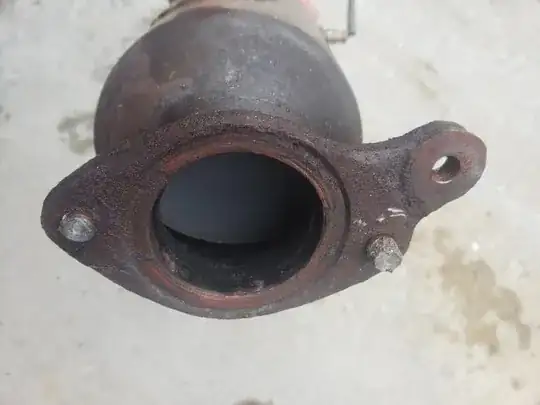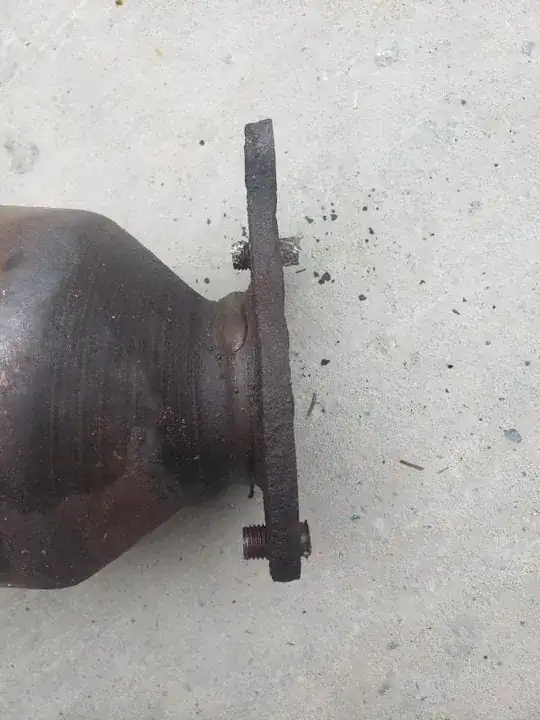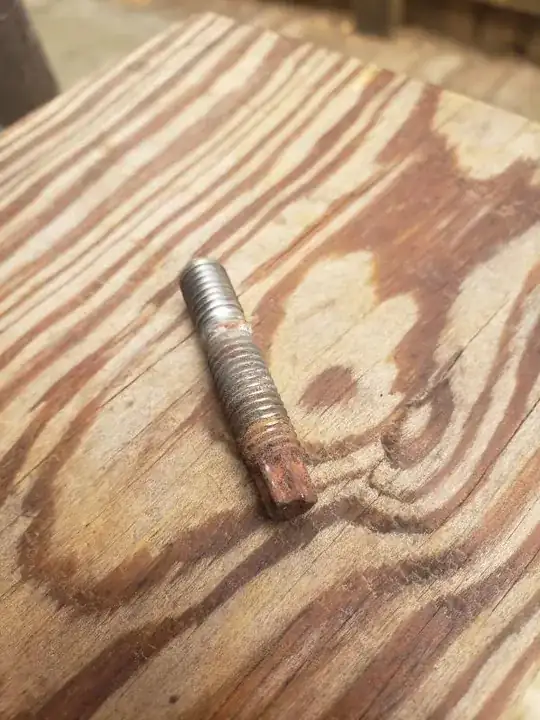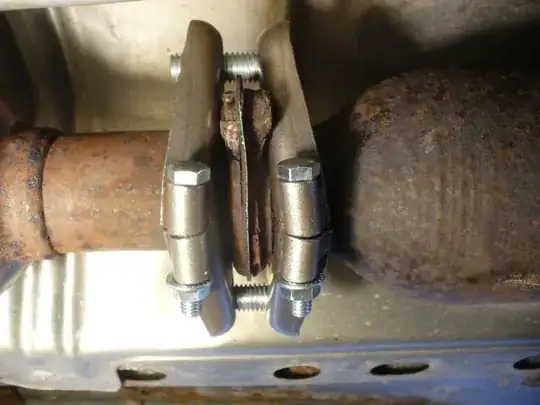This is the flange plate on one of my catalytic converters AKA exhaust manifolds where it joins the exhaust pipe.
Before they broke off, the studs looked something like this, the driver head was reverse torx:
The location of the flange is on the very underside of the vehicle with high exposure to water so no wonder it and the studs were badly rusted. I wanted to remove the two studs but the rusting/adhesion was so bad that they broke. First tried the proper method using a reverse torx socket, that broke off, then used a plumbers wrench around the stud but that broke off too. The plumbers wrench method worked on the other catalytic converter (V6 engine). Of course, I WD-40ed the hell out of it but it didn't help.
How can I remove these broken off rusted studs without going to a machinist to be charged an arm and a leg? I am trying to not have to buy a whole piece just because the broken studs ($240).



